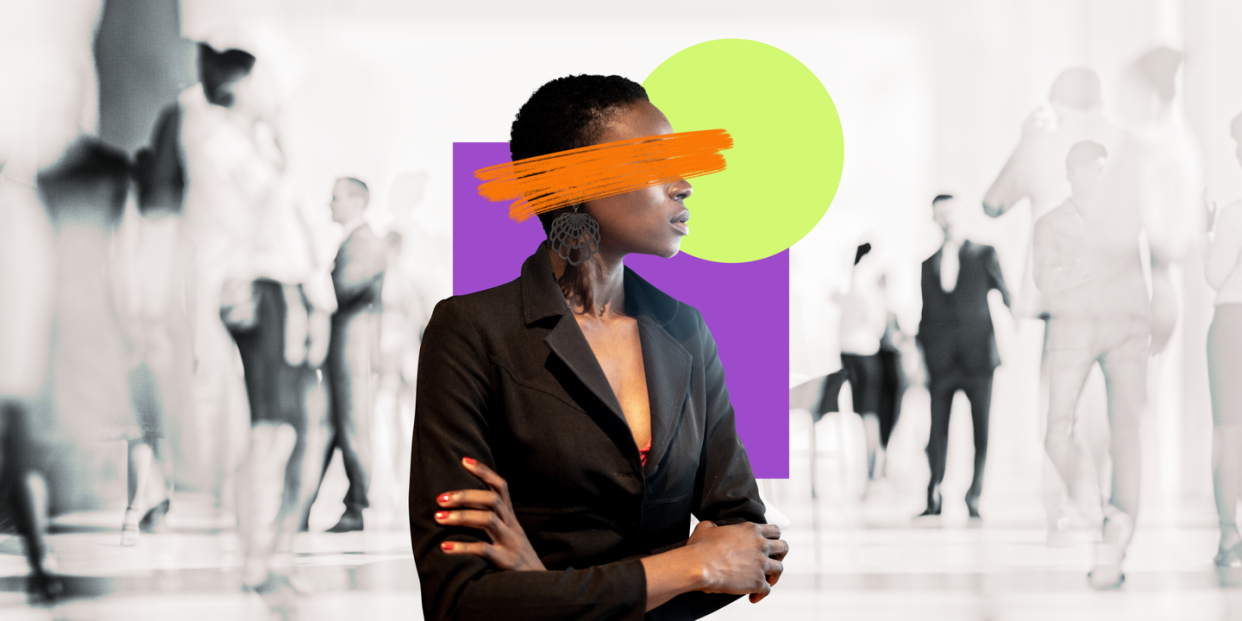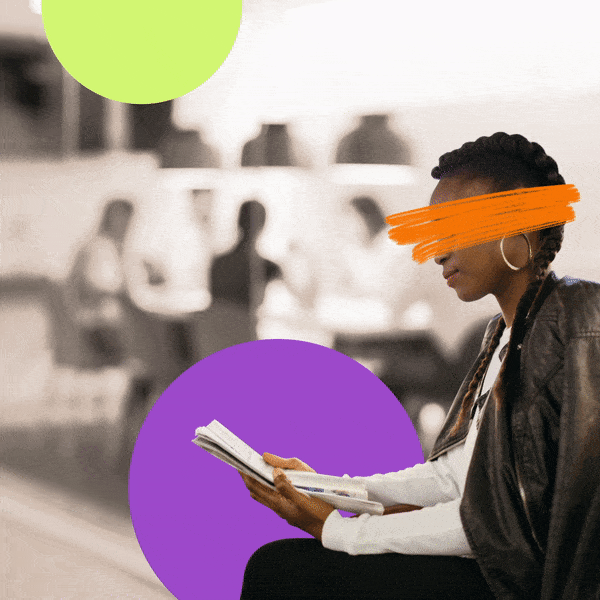We need to embrace introverted Black Women in the workplace

There’s a huge amount of pressure for Black women, especially in white-dominated workplaces, to be extroverted. Mainstream media has presented a one-dimensional view of Black culture as sassy and larger than life, which places extroverted Black characters and personalities at the forefront without a thought for Black women that don’t fit the stereotype.
In our daily work lives, we’re expected to be the office jester, the team entertainer, the person with the best dance moves at the Christmas party screaming ‘Yass’ when a Cardi B song comes on, the go-to person to have a gossip with. It’s a role many of us (me included) have played up to at times, purely to just survive in our respective organisations, because when Black women are introverted in the workplace, deviating from the expected stereotype, it can have a damaging impact on our career.
Jeri Bingham, the founder and host of HushLoudly, a podcast dedicated to amplifying the voice of introverts and the creator of Black Introvert Week explains, “When we aren’t overly talkative, overly expressive and living our lives out loud as they expect, I believe our lack of animation and conversation can be misread as mean, unfriendly, angry, unhappy, and even not engaged. The trouble with this is, this misperception can impact leaderships' decisions about raises, bonuses, promotions, and key assignments.”
This was highlighted by writer Brianna Holt, in her viral twitter thread about her workplace experience as an introverted Black woman working on an all-white team. Despite being a high performer, her introverted behaviour was constantly mentioned as an issue in her performance reviews. When she asked her manager what he meant by ‘Needs more improvement in team effort’, he gave the examples that she didn’t often go to team social events, didn’t talk much in the team Slack channel and didn’t interact with others. Hundreds of Black women added to the thread to attest that this was also their experience, many highlighted that their managers had criticised them for ‘not making jokes’, being ‘difficult to read’, not showing ‘enough personality’ and felt this was holding them back from being promoted or getting a pay rise.

Like myself, many of the Black women I spoke to admitted that being in the workplace brought out more introverted tendencies in them. We can’t seem to win, because when we’re extroverted, we’re seen as ‘loud’, ‘ghetto’, ‘a lot’. We’re constantly walking a tightrope of being ‘too much’ and ‘not enough’. When we're the only ones who look like us in our teams, we can feel watched and judged because of this. We may not want to draw too much additional attention to ourselves – which being more introverted allows us to do. When we’re the only Black women in our teams, it’s hard to immerse ourselves in office culture, which is generally dictated by the preferences of our white colleagues. From the topics of general conversation to after-work socialising, none of it caters to most Black women.
Psychiatrist Carl Jung was one of the first people to define introverts and extroverts, stating that while introverts draw energy from within, extroverts draw it from the world around them, through people and places. Introverts tend to be quieter, reserved and introspective, becoming drained if they are around too many people for a long period. Extroverts enjoy being around others, preferring to work in a group, and are more comfortable being the centre of attention. There is an agreement that everyone to some extent has a combination of both introverted and extroverted personality traits, although people tend to lean closer to one dimension over the other.
The intersection of race and gender with introverted and extroverted personality types isn’t widely discussed because introverted personality traits are typically reserved for white women. Black women are often subjected to the racist tropes of the ‘angry Black woman’, or the ‘strong Black woman’ – we’re not afforded the luxury of being quiet, more reserved and introspective without it coming across negatively.
When Black women are introverted in the workplace, it’s weaponised against us. We’re perceived as anti-social and not a team player, our performance is overlooked and this can have an adverse impact on our career. Dionne, a 28-year-old product designer, explained that by not going to after-work drinks, it made her role more challenging. “People at work started to claim that I was boring and not fun. Soon they started to exclude me from the important conversations and meetings that pertained to my role. For my career it meant I had to work harder to be known and take up the space I was meant to.”

Yasmin, a 26-year-old marketing executive, experienced a similar situation, with her work colleagues making jokes about her not attending work socials and generally treating her like an ‘outcast’. “My personality type was seen as unacceptable. This made me feel undervalued, anxious and stressed daily.”
Black women face several challenges when navigating predominantly white workplaces. According to recent research, Black women, regardless of where they are born, have the lowest probability of being a top earner and Black women born in the UK are the most underrepresented group in the top percentages of incomes. Despite being overqualified for our jobs, we are less likely to be promoted to a management position and we see this reflected in the lack of Black female representation in leadership roles. The 2020 Colour of Power index revealed that just 11 out of 1,099 positions in the UK’s most powerful institutions are held by women of colour. As a Black woman in the workplace, not only are we working twice as hard to be considered as good as our colleagues, code-switching and suppressing our true selves to make those around us feel comfortable, but we are also in a constant state of recovery and healing from the gaslighting and microaggressions, which takes a heavy mental toll.
Career management strategist and founder of Confident Career Woman, Ericka Spradley, told me, “the bias that surrounds introversion when compounded with the discrimination Black women face at work due to their race and gender can negatively impact an individual’s wellbeing.”
Jeri adds, “Masquerading as an extrovert, or a more outward version of yourself to please others is taxing, and a never-ending performance that is exhausting. Pretending to be someone else is never a good thing.”
Although introversion isn’t always embraced within the workplace, those that lean more towards that personality type possess a variety of strengths. Introverts are generally good listeners, with strong observation skills who are sensitive to needs of others – which makes them better at interpersonal communication. There's so much power in being introverted and both Ericka and Jeri agree this is something that as Black women we should be able to celebrate and embrace instead of feeling forced to change. “Lean into your introversion, understand your attributes, and embrace what makes you special. If we're allowed to communicate, create, meet, present, connect and lead in the way that’s most comfortable for us, everyone wins,” says Jeri.

Many of the Black women I spoke to were hesitant to try and act more extroverted. “I think that being more extroverted could bring more problems. It would make me more visible and susceptible to being watched,” Dionne says. Yasmin also expressed concern that if she was to be more extroverted, she might be expected to play to up to ignorant stereotypes. “Would they expect me to be funny? Sassy? Will I then have to pretend to be somebody that I’m not?”
Although there is a long way to go before we start seeing more mainstream representation of introverted Black women, things are changing. Actress Issa Rae created the Web Series Awkward Black Girl, based on her own introversion. “I’m introverted, and my Blackness doesn’t really fit mainstream media’s definition in that we’re always portrayed — women, especially — as loud, brash, sassy, sometimes cool, trendy… and that’s just never been me,” she explained. Tennis player Naomi Osaka has spoken about trying to embrace her introverted nature, revealing in one interview: "Growing up being [labelled] 'the quiet one' puts you in a box and, even worse, makes you stand out when all you want is to blend in. But now I try to embrace and own it.”
Black women are not a monolith. People need to let go of their assumptions around what they expect us to be, because this is how a working environment where Black women can feel safe and conformable to be themselves will be created.
You Might Also Like

